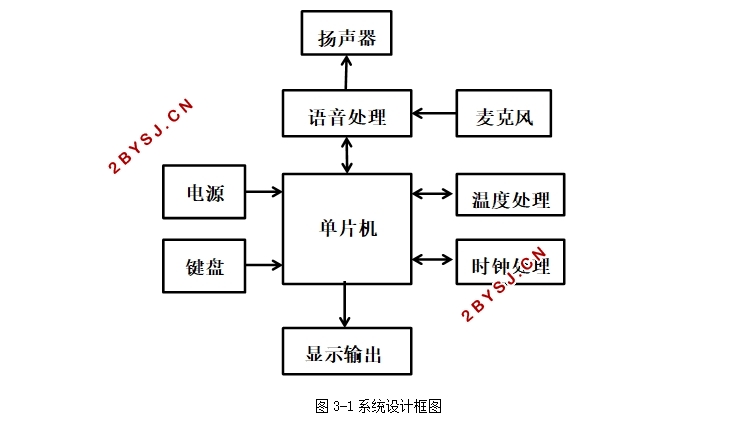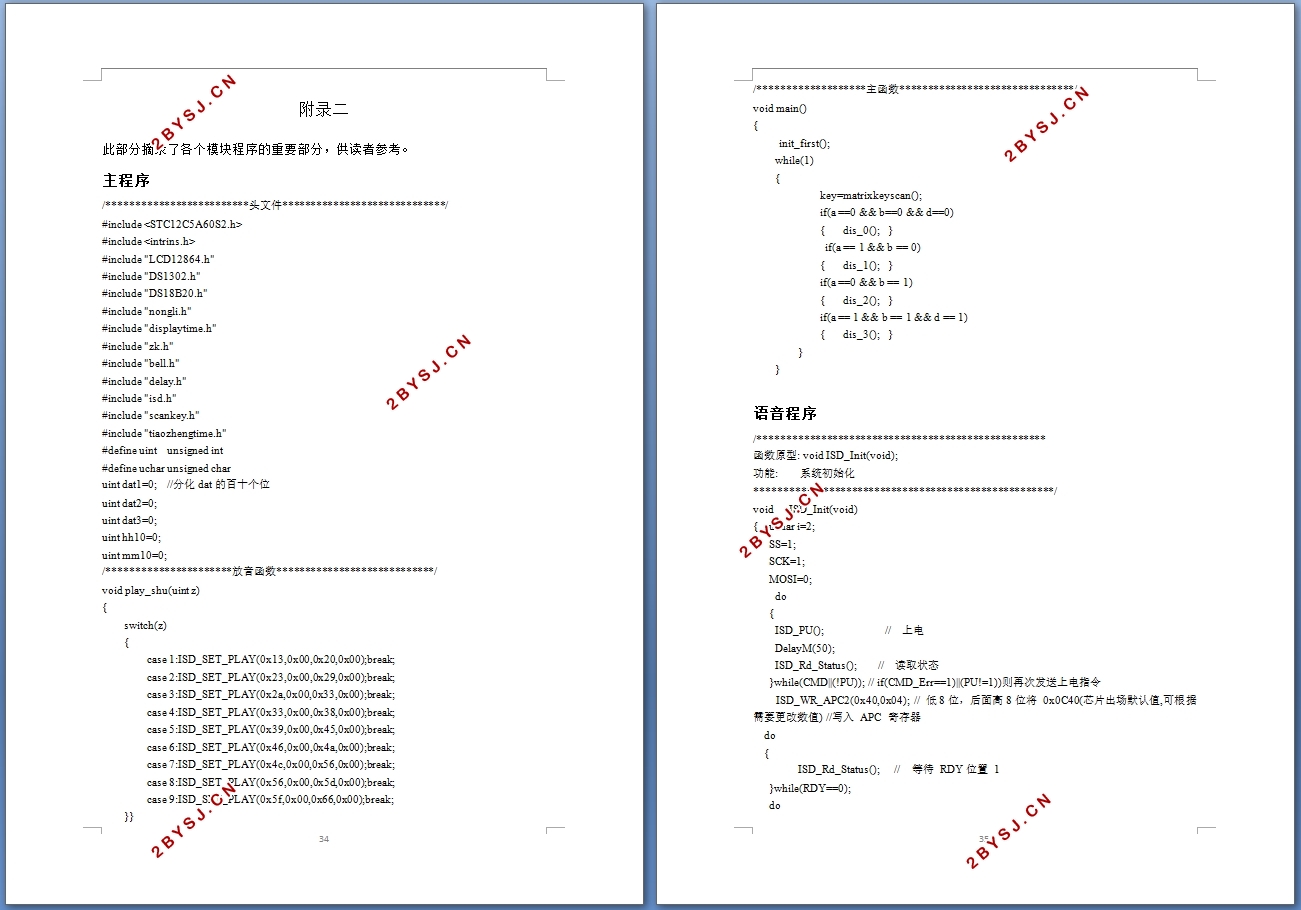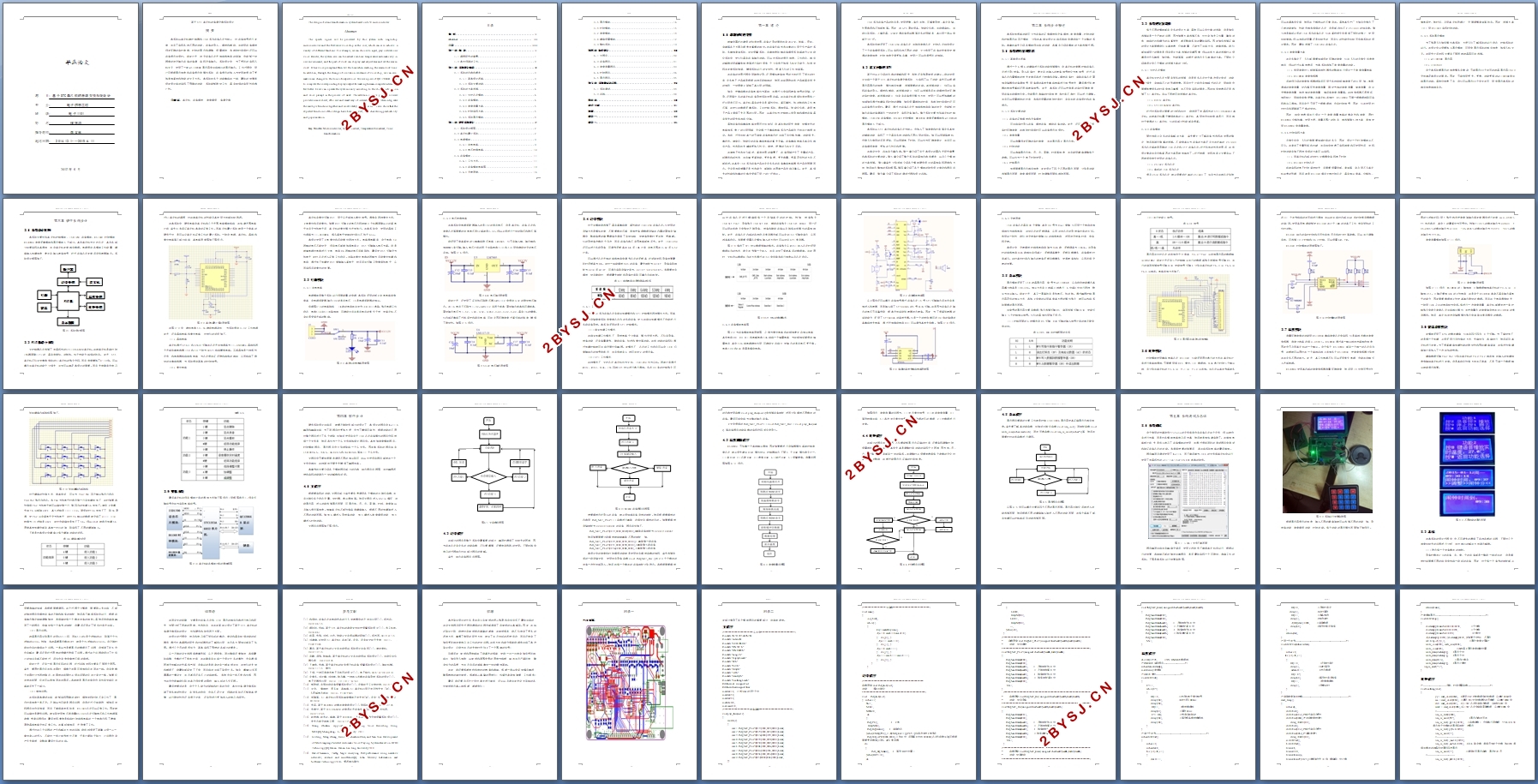基于STC单片机的音调变换系统设计
无需注册登录,支付后按照提示操作即可获取该资料.
基于STC单片机的音调变换系统设计(开题报告,外文翻译,论文13800字)
摘 要
本系统以单片机微控制器和ISD系列语音芯片为核心,对语音信号进行处理,并且了实现多种不同的功能:语音的录入、播放和删除;自动用语音播放所处环境的实时温度;时钟的显示和调整,设置闹钟,当闹钟时间到时还可以语音提示并报时。除此之外,改变语音芯片外接振荡电阻的阻值,也能够一定程度的改变输出语音的音调,实现变音输出。系统设计中,为了更好的实现人机交互,使用了一块QC12864B显示屏来完成相应的显示输出。工作过程中,用户可根据显示信息和语音提示来操作系统,语音提示的加入为使用者提供了更加直接高效和智能的交互方式。本系统将多个功能集成在一起,最终的效果表明此设计成功实现了预期的功能,系统能够稳定工作,具有较强的实用性和推广性。
关键词:单片机 语音播放 温度播报 音调变换
The design of a tone transformation system based on STC microcontroller
Abstract
The speech signal will be processed by this system with single-chip microcontroller and the ISD series voice chip as the core, which can also achieve a variety of different functions. For example, we can choose to input, play or delete our voice. Besides, the system also can broadcast real-time temperature automatically in our environment; and the part of clock can display and adjust time and set the alarm clock. It has voice prompt and then tell the time when reaching the alarm clock time. In addition, through the change of oscillation resistance of voice chip, we can also make some changes to the tone of output voice. We use a piece of QC12864B screen to complete the corresponding display output for making human-computer interaction feel better. Users can operate the system easily according to the display information and voice prompt in the process of work. The addition of voice prompt for users provides a more direct, efficient and smart way of interaction. This system integrates the multiple functions together and works stably. The final results also show that the expected functions of this design have been achieved, which has strong practicability and popularization.
Key Words: Microcontroller; Voice broadcast; Temperature broadcast; Tone
transformation



目录
摘 要 I
Abstract II
目录 III
第一章 绪 论 1
1.1 课题研究的背景 1
1.2 本文所做的工作 2
第二章 系统设计概述 3
2.1 系统的内容和要求 3
2.1.1 基本设计思路 3
2.1.2 系统主要功能 3
2.2 系统的方案选择 4
2.2.1 主控芯片模块 4
2.2.2 语音模块 4
2.2.3 温度测量方案 5
2.2.4 时钟实现方案 5
2.2.5 系统显示模块 6
第三章 硬件系统设计 7
3.1 系统设计框图 7
3.2 单片机最小系统 7
3.3 电源模块 9
3.3.1 供电电路 9
3.3.2 电压转换电路 10
3.4 语音模块 11
3.4.1 工作方式 11
3.4.2 语音模块电路图 12
3.4.3 变声原理 14
3.5 显示模块 14
3.6 时钟模块 15
3.7 温度模块 16
3.8 键盘设置模块 17
3.9 整机系统 19
第四章 软件设计 20
4.1 主程序 20
4.2 语音程序 21
4.3 温度测量程序 23
4.4 时钟程序 24
4.5 显示程序 25
第五章 系统调试及总结 26
5.1 系统调试 26
5.2 总结 28
结束语 30
参考文献 31
致谢 32
附录一 33
附录二 34
